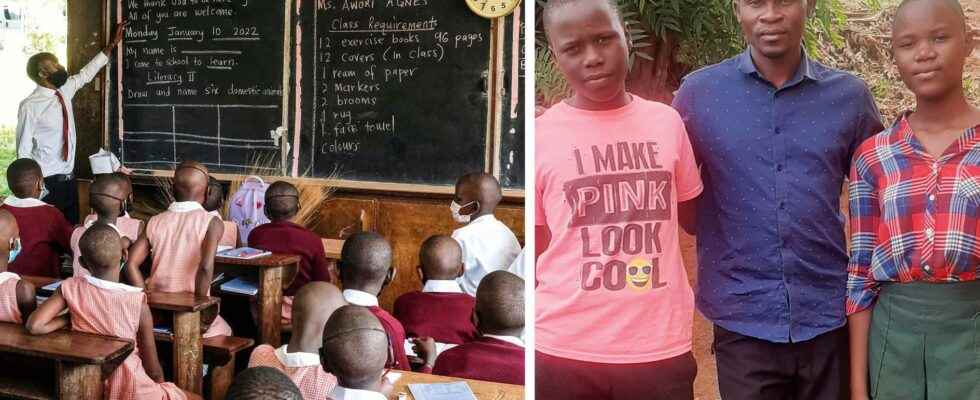Poverty and teenage pregnancies hit young people in Uganda hard
Published: Less than 40 minutes ago
When the pandemic broke out, schools in Uganda closed down.
Many of the most vulnerable children were forced out of work or into marriage.
Now, two years later, the school desks are empty, at the same time as the UN reports on increased teenage pregnancies.
As many as 15 million students in Uganda were forced to suspend their studies when the pandemic struck in full force in 2020. Many of them had to get into work, help their parents who were having a hard time and take care of younger siblings.
When the schools in January this year, after almost two years of lockdown, finally opened the gates again, it was a day of joy for many children and young people. But almost a third of the students have not yet returned to school – despite the fact that the schools are now open as usual, reports the news site NPR.
– It was not easy for my students during the pandemic, and the children were very depressed, says Miss Adong Jenifer works as a head teacher at Beyogoya Primary school in Uganda.
The fact that children do not go to school is problematic in several ways: Many of the younger ones have not yet learned to read or write and are far behind. During the pandemic, there has also been a sharp increase in the number of teenage pregnancies in Ugandaaccording to a UN report. Children in poor families have been forced into work during this period, and it has become an income that the most vulnerable families cannot do without. And in the wake of covid and the new economic world situation, the money is not enough to pay the school fee.
Teacher: The children cried for happiness
The Playmatters project is an initiative that was started to give more children in Uganda, among other places, the chance for a good education – and a better future. With the help of Playmatters, the school receives teaching materials to be able to help children in families who otherwise would not have been able to afford to pay the school fees. The project is run with the support of several international aid organizations such as the International Rescue Committee and Plan International, as well Lego foundation.
Beyogoya Primary School in Uganda, is one of the schools run by Playmatters. Head teacher Miss Adong Jenifer has worked hard to get the students to return. Many children from the nearby Palabek refugee camp go here.
She says that even though the school was closed, she was at work to be there for those who wanted to come by and talk. And as school approached, the teachers went out and knocked on doors and visited their students.
– The children cried with happiness when they got to come back to school, she says.
According to her, the authorities in Uganda have worked hard to spread information to make people understand how important it is for children to get an education.
Had died of AIDS
Oweka Patrick is the student council chairman at the school. While the pandemic was raging at its worst, he was at home taking care of agriculture, and he really longed to get back to his studies – and classmates.
– All the schools were closed and I was really not happy.
To some extent, he was able to study at home on his own when the school was closed.
– Playmatters supported us with school materials that we could bring home during the pandemic such as books, pencils and erasers. And I appreciate that very much.
But several of his classmates have not returned to school. He tells of some students who have gotten married in the meantime and others who have died of AIDS.
He also points out that school has a very important preventive role in society:
– The school teaches us about HIV and all its diseases that scare me very much, he says.
Oweka Patrick loves school and has a clear dream for the future:
– I want to be a politician!
Lost their parents
Ahurra Brian is a teacher of science, math and English at Bukere Primary School, located near the Kyaka II refugee camp, which is also supported by Playmatters. He has been a teacher for twelve years.
– Life was difficult for my students during the pandemic. And knowing that some students will probably not show up again.
Several of his students who left the classroom in the spring of 2020 have not returned.
– Some have married, some have lost their parents and been forced to work to support their younger siblings, he says.
Could not afford the basic goods
The student Dusenge James is 14 years old and is in year 6 at the same school.
– I missed my friends and my teachers very much, he says.
His family had a very tough time during the lockdown.
– We could not afford to buy the basic goods, because many workplaces closed.
With the help of Playmatters, teachers have also been helped to prepare to take care of students who have grown up, but who are lagging behind in education after two years of absence from school.
– Thanks to the support we have received, we have had the opportunity to go from home to home to ensure that the children return to school, says Ahurra Brian.
